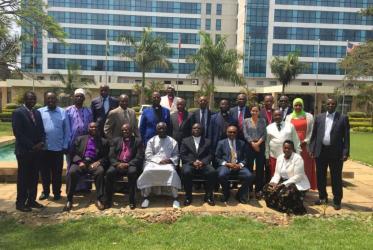Displaying 61 - 80 of 104
‘Love is stronger than hate’
02 May 2017
WCC general secretary speaks on religion and discrimination
14 February 2017
An interview with the Ethiopian Patriarch, Abune Matthias
14 February 2017
Churches in Norway and Pakistan break new ecumenical ground
26 January 2017
In Syria and Iraq, minorities must come out of the darkness
28 November 2016
Nigerian Christians and Muslims open historic peace centre
20 August 2016
In Ghana, women bring open minds, honest words
05 July 2016
Religion: Way of war or path to peace?
30 June 2016
WCC Central Committee convenes in Trondheim, Norway
22 June 2016












